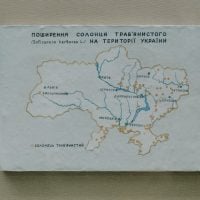Deadline: 09-Oct-20
The Clean Captive Installations for Industrial Clients in Sub-Sahara Africa is seeking proposals for its Solar PV Pilot Projects that aims to demonstrate the economic and financial viability of clean captive energy installations for industries and to enhance their adoption in the four partner countries (Ghana, Kenya, Nigeria and South Africa) and beyond to the entire continent.
This project is part of the International Climate Initiative (IKI) of Germany. The Federal Ministry for the Environment, Nature Conservation and Nuclear Safety supports this initiative based on a decision adopted by the German Bundestag.
The project is implemented by the United Nations Environment Programme (UNEP) and its collaborating centre at Frankfurt School of Finance & Management (Frankfurt School), together with consultants who provide local market and captive power expertise.
Funding Information
- In order to allow for several pilot projects to be supported in each of the four countries, a maximum grant amount of USD 100,000 will apply to each of the pilot project.
- The amount of funding requested is not explicitly a scoring criterion, but may be part of financial viability assessment:
- For Type 1 (Transaction Costs) applications
- Max grant amount that can be availed per project is USD 100K for transaction costs
- At least 25% of transaction cost should be own contribution
- Total transaction cost to not exceed 25% of equipment and installation costs
- For Type 2 (Financing Vehicle/ Instrument) and Type 3 (Capacity Building) applications
- Max grant amount that can be availed per project is USD 100K
- At least 25% should be own contribution
- For Type 1 (Transaction Costs) applications
Project Components
- Under taking baseline studies of the current markets for clean captive installations in the four partner countries and raising initial awareness among national stakeholders.
- Developing technical, economic and financial tools to facilitate the understanding and undertaking of clean captive installations.
- Realizing pilot projects in each of the four partner countries to address market barriers.
- Disseminating knowledge created by the pilot projects and the programme activities in the partner countries and the sub-Saharan Africa region.
Eligibility Criteria
The following provide examples of expected minimum evidence of capabilities:
- Type 1 (Transaction Costs) project – applicant or partner (including contracted party) track record in implementing at least two solar PV installations
- Type 2 project (Financing Vehicle/ Instrument) – sufficient internal staff capacity and potential pipeline of solar PV captive projects
- Type 3 project (Capacity Building) – training provider (whether the applicant or a third party) experience in conducting at least two similar training exercises in the past
- In addition, all applicants will be expected to show competence in financial management or have adequate financial management procedures to manage and report on funding received.
- Lead applicant must furthermore have been registered in the country of implementation for at least six months prior to the application submission deadline.
- The application must also provide evidence of being able to complete project implementation within 18 months; and prove evidence of adhering to the conditional funding support requirements.
Selection And Implementation Process
- Screening (10 working days)
- Applications will go through the initial screening that has a set of minimum prerequisites that the applications need to pass. This step ensures that the pilot project proposals meet criteria fundamental to the CCI project Open Call for Proposals objectives and requirements including showcasing innovation and replication potential.
- Screening against prerequisites is based on a pass/fail scoring and will be performed by a CCI project team review panel.
- Assessment (30 working days)
- Applications that pass the initial prerequisite step will then undergo evaluation by the review panel members. The proposed projects will be scored based on the assessment criteria (see Annex 2) and ranked in order from highest to lowest. Applications for all eligible costs categories/project types (Type 1, Type 2 and Type 3) will be evaluated together. During the assessment phase, the CCI team may communicate with applicants if further clarification is needed on proposals.
- Shortlisting and due diligence (30 working days)
- Depending on the amount of funding requested by the highest-scoring projects, 2 to 3 applicants will be shortlisted and notified of potential grant award. The short-listed applications will be subject to due diligence by the review panel members, which will consist of requests for and review of supporting documentation not yet provided, and a project site visit and/or meeting with the applicant, which may be conducted remotely if required by circumstance. Applicants that successfully pass due diligence will be considered for grant award. If an applicant fails due diligence, the next highest ranked applicant will be moved up to the short-list and notified of potential grant award.
- Note: Due to the outbreak of COVID-19, physical site visits and meetings will be limited and possibly conducted virtually.
- Grant award decision (10 working days)
- Once due diligence of short-listed applicants is completed satisfactorily, Frankfurt School of Finance & Management (FS) will start the process of signing grant agreements with chosen pilot project parties. Successful pilot projects will be publicly announced on the CCI project website and potentially other media (e.g. IKI news release). Unsuccessful applicants will be notified once contracts with successful applicants have been signed. No feedback will be provided on applications.
- Implementation
- Frankfurt School of Finance & Management will be the legal entity that will sign grant agreements with the chosen pilot project parties. The grant support will be disbursed in 2-4 tranches for results/progress achieved against agreed milestones over a period of a maximum of 18 months. Data and information sharing, periodic site visits (if applicable) and progress/monitoring updates will be required from successful applicants.
For more information, visit https://www.captiverenewables-africa.org/publications/









































